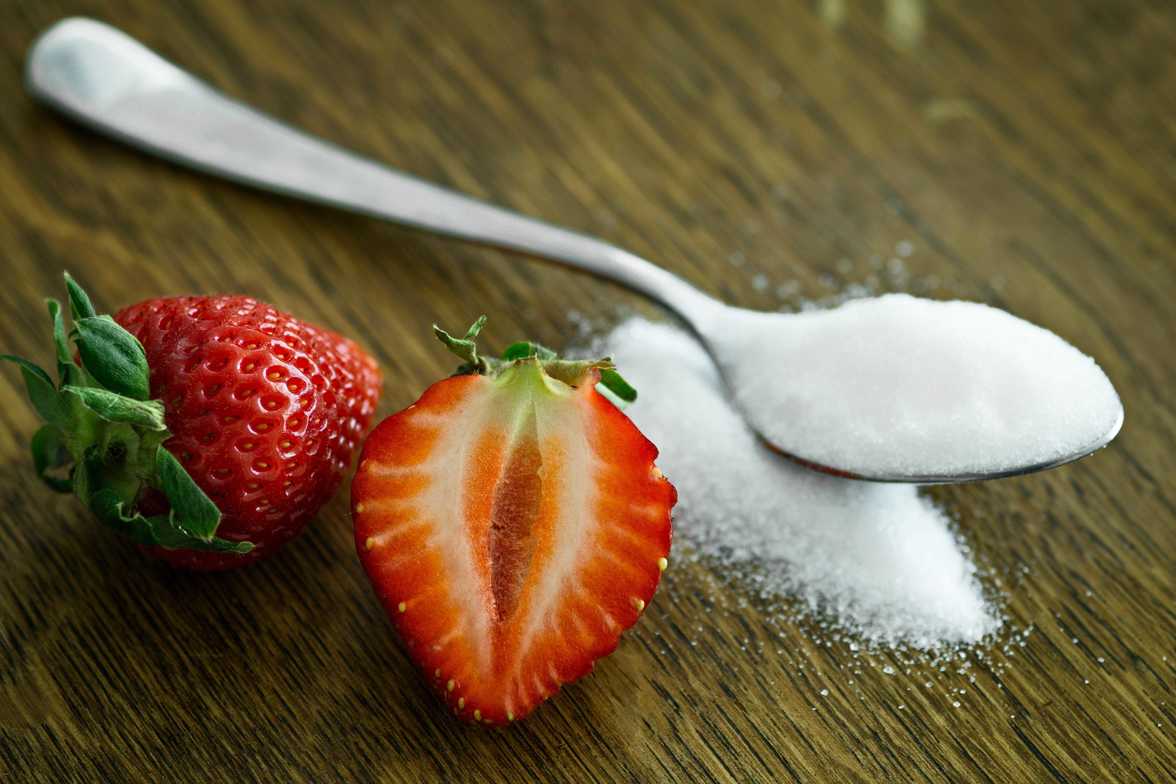
If you take a look at the ingredients of some sweet drinks, you may notice they contain artificial sweeteners. These are substances that can be used in place of sugar to mimic the taste. While they reproduce the sweetness that sugary foods or drinks will typically have, they add no additional calories. Many products will include artificial sweeteners to make foods taste better and will allow them to use advertising keywords like “Sugar-Free” or “Diet.” Are these products healthier for you? Let’s talk about artificial sweeteners, what the science says about them, and some of their potential upsides and downsides.
The term “artificial sweetener” refers to synthetic sugar substitutes that are developed to replicate the sweet flavor. Many of these are developed by modifying sweet-tasting molecules in a way that prevents them from being digested. Two of the more common artificial sweeteners developed with this method are aspartame and sucralose. There are also sugar substitutes that can come from nature. Some artificial sweeteners like stevia are extracted from herbal or plant sources. While this may make the product seem more “natural,” it still requires a lot of processing to extract stevia on an industrial scale.
If you take a look at the science looking into artificial sweeteners, you can see there is not a definitive answer to their safety. All of the studies on the effects of these products show conflicting results. You can find studies claiming artificial sweeteners cause weight loss, weight gain, increase cravings, and decrease cravings. There is a consensus that some specific artificial sweeteners can harm gut bacteria which will lead to IBS. Sucralose and aspartame were the only two used in this study and the effect other sweeteners have on gut bacteria has not been fully investigated.
Making the decision to avoid artificial sweeteners is difficult and the best approach may be to look at the potential upsides and downsides. The upsides of artificial sweeteners are that they make foods taste better. They have the ability to add that sweet flavor we love without adding extra calories. This can also help aid in removing harmful drinks, such as soda, from your diet. Potential downsides include the possibility of disrupting gut bacteria leading to Irritable Bowel Syndrome. Artificial sweeteners may also lead to weight gain. Sucralose specifically has been shown in cases to increase appetite causing people to have more cravings and overeat. Since most people choose artificial sweeteners to avoid calories and lose weight, this can be very counterproductive to their goals.
The decision to include artificial sweeteners in your diet is up to you. If you are including them, it may be a good idea to specifically use stevia which has been shown to have the least effect on gut bacteria. Here at Rush-Henrietta Family Chiropractic, located in Rochester, NY, our nutritionist can help with all your nutritional questions. If you are looking to make healthier modifications to your diet, give us a call and schedule a free consultation.



